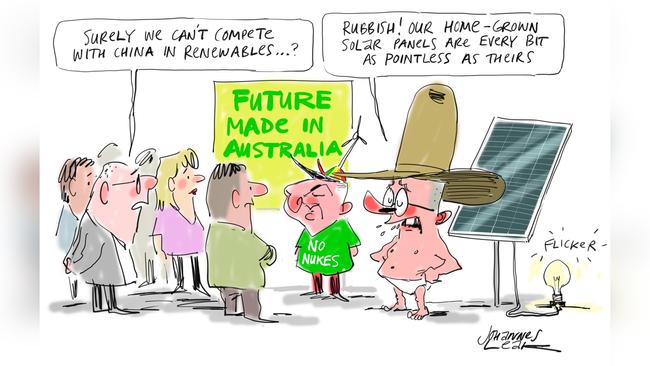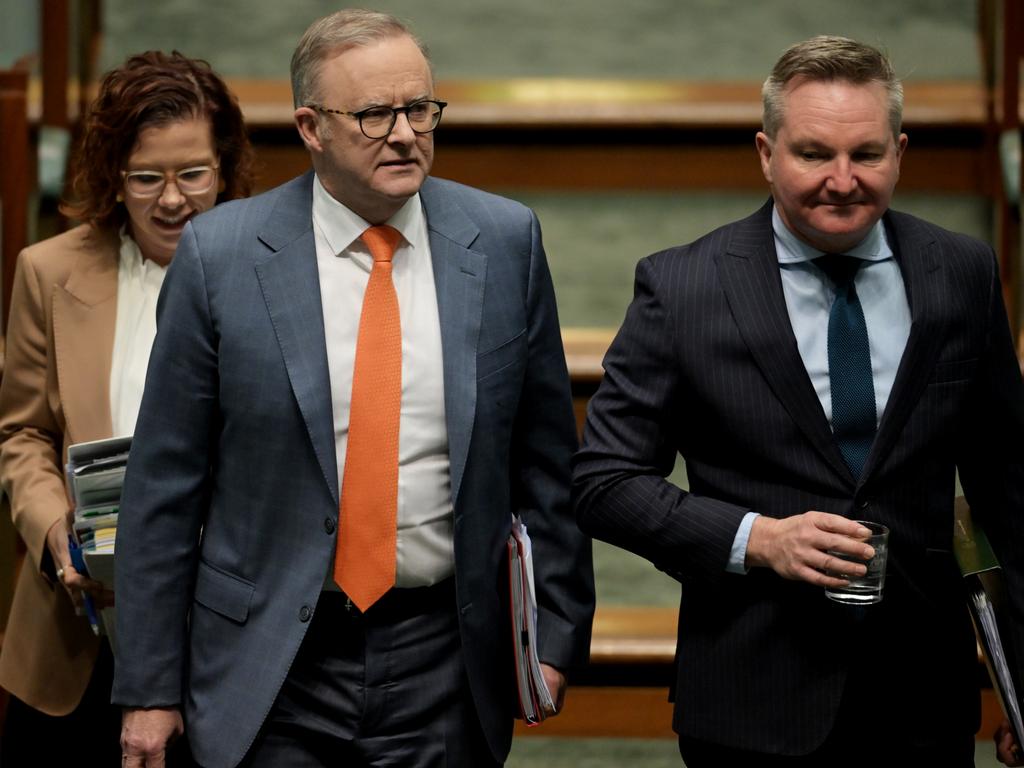Government must get back to basics on energy policy

Together with government intrusion, a capital strike by the major banks against big coal and gas projects is increasing sovereign risk and will drive investments offshore. Meanwhile, Australia is pushing ahead with a renewables-only approach to energy against all evidence from overseas that gas and possibly nuclear must be part of the mix. Energy Minister Chris Bowen is chasing a climate target at a pace that cannot be met on a timetable that is destined to be missed. Rather than pull back, the response of government is to lift the target. And as the corporate appetite wanes for environmental, social and governance investing internationally, government here is racing to make it part of the legislated architecture for business.
These distractions from the real and pressing productivity challenge may seem trifling for those in the business of government. But they pose a grave risk for those in the private sector who are being told increasingly by legions of advocates and ticket clippers what they can and can’t do and how. Energy and industry experts have given repeated warnings to government about what current energy policy means for prosperity. But with the Greens holding a balance-of-power position in the Senate, Australia’s industrial capacity is increasingly at the mercy of policies being judged by those who are unashamedly anti-business.
As we reported on Monday, the latest warnings have come from major Australian energy players Senex Energy and APA Group that urgent action is needed on gas supply and infrastructure to avoid a crippling energy crisis. Manufacturers are reporting that businesses are at breaking point as globally uncompetitive energy prices threaten the viability of companies. The projections are that rising global demand for liquefied natural gas will lift the price to $19 a gigajoule in the first half of next year compared with $12.50 in 2024. Industry in the US is paying only a fraction of this amount because of a healthier demand and supply balance. Incredibly, Australia is looking to import gas for domestic users.
For those who wish for a renewable energy future, the numbers are sobering. Despite the trillions of dollars spent on renewable energy projects, globally fossil fuel use and greenhouse gas emissions continue to grow. Wind, solar and batteries have been virtually unable to shift the needle on the percentage that fossil fuels make up in terms of global primary energy use. The same is true in Australia. In his final speech after 14 years leading Senex Energy, Ian Davies said 90 per cent of “our primary energy sources in Australia today still come from fossil fuels” compared with 94 per cent in 1984. It is an unfashionable truth that must be heard and heeded by government and all those responsible for the nation’s future energy and economic security.




The Albanese government continues to look in the wrong direction on energy and environment policy when urgent action is required to get back to basics. Mega solar projects for export such as that proposed by billionaire Mike Cannon-Brookes may draw headlines but they won’t keep the lights on or the wheels of industry turning at home. Environment Minister Tanya Plibersek’s stalled Nature Positive plans may please the international elite who will gather in Sydney for the Global Nature Positive Summit in October but they won’t put food on the table for ordinary Australians. Mandatory reporting of climate performance, as has been passed by federal parliament, will empower a legion of bureaucrats but add billions in compliance costs for industry and push many of those working in the productive sector closer to the wall.